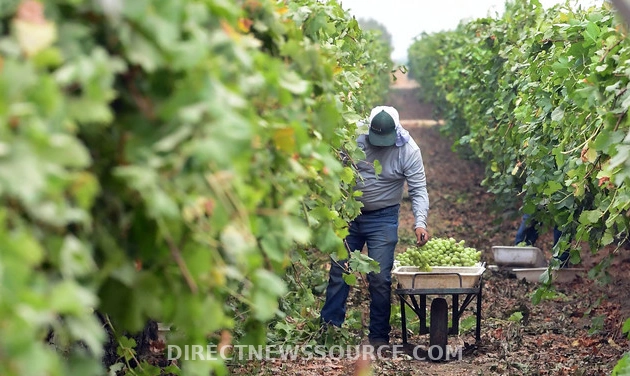
The Impact of Trump's Immigration Policies on California Farmers
President-elect Donald Trump’s promises to lift water restrictions in California could lead to bumper crops for farmers, but the looming threat of mass deportations has cast a shadow of uncertainty over the agricultural sector.
The Dilemma Facing California Farmers
California, known for its deep-blue electorate, saw the largest agricultural constituency backing Trump in the 2016 election. The Central Valley, a conservative-leaning region, eagerly awaited Trump’s commitment to increase water supply. However, the flip side of his campaign rhetoric—mass deportations of undocumented immigrants—puts the state’s agricultural workforce in jeopardy.
Undocumented immigrants form a significant portion of California’s farm labor force, creating a dilemma for agricultural leaders who rely on their work. The uncertainty surrounding Trump’s immigration policies has left many questioning the future of their workforce.
The Uncertain Future
Trump’s appointments of anti-immigration hardliners and his aggressive stance on deportations raise concerns among farmers. The logistical challenges of deporting hundreds of thousands of farmworkers from California, coupled with legal hurdles, add to the complexity of the situation.
The potential impact on California’s farmers extends beyond labor issues. Trump’s actions in his second term will determine the trade-off between water access and immigration policies for the agricultural community.
Advocating for Solutions
Facing an uncertain future, agricultural leaders are seeking alliances within Trump’s administration. They aim to influence policies that affect their industry, including advocating for a new temporary worker visa program and a pathway to citizenship for undocumented farmworkers.
While political shifts may alter the landscape, the focus remains on protecting the existing workforce and ensuring fair treatment for all laborers in the agricultural sector.
Looking Ahead
Despite the challenges posed by Trump’s immigration agenda, California’s farmers are resilient. By engaging with policymakers and advocating for inclusive policies, they strive to secure a sustainable future for the agricultural industry.















